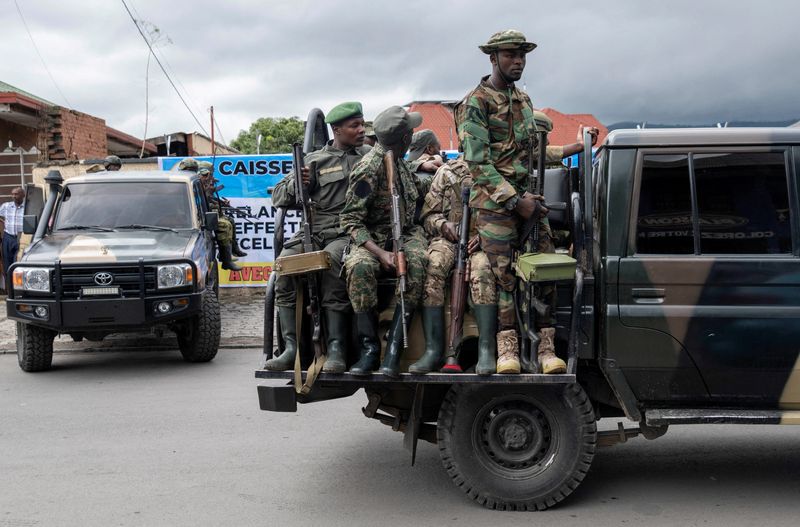U.S. Pushes Congo-Rwanda Peace Accord with Bilateral Minerals Deals
Washington, DC – May 2, 2025 – The United States is intensifying efforts to broker a peace accord between the Democratic Republic of Congo (DRC) and Rwanda, with a target signing at the White House in approximately two months, according to President Donald Trump’s senior Africa advisor, Massad Boulos. The initiative, reported by Reuters on May 1, 2025, is paired with bilateral minerals deals aimed at securing U.S. access to the region’s vast deposits of critical minerals, including cobalt, lithium, and tantalum, amid escalating violence driven by Rwandan-backed M23 rebels in eastern DRC.
The peace accord builds on a Declaration of Principles signed on April 25, 2025, in Washington, where DRC Foreign Minister Thérèse Kayikwamba Wagner and Rwandan Foreign Minister Olivier Nduhungirehe committed to drafting a peace deal by May 2 and halting support for armed groups. The agreement, witnessed by U.S. Secretary of State Marco Rubio, seeks to end a decades-long conflict rooted in the 1994 Rwandan genocide, which has killed millions and displaced millions more in eastern DRC. Despite the pledge, fighting continues in North Kivu, with M23 rebels seizing key mineral-rich areas, including Goma, in early 2025.
The U.S. sees the accord as a gateway to significant public and private investment in the DRC and Rwanda, regions rich in minerals essential for smartphones, electric vehicles, and advanced technologies. The DRC is the world’s largest cobalt producer and holds vast deposits of copper, lithium, and coltan, while Rwanda exports tantalum, tin, and gold, much of which is allegedly smuggled from the DRC. Washington is in talks to invest billions in both countries, with Rwanda confirming separate discussions for a minerals deal. The Trump administration views these deals as a counter to China’s dominance in the region’s mineral supply chains, which currently control much of the DRC’s cobalt and coltan output.
The push for peace is tied to economic and strategic interests. Congolese President Félix Tshisekedi has offered U.S. firms access to minerals in exchange for security assistance, a proposal first pitched by a Congolese senator in early 2025. Prominent Trump supporter Erik Prince is already positioned to help the DRC secure and tax its mineral wealth, raising concerns about private sector influence. The U.S. State Department emphasizes responsible and transparent mining partnerships, aligning with Trump’s “America First Agenda.” However, critics like Christophe Muisa in Goma argue the U.S. is the primary beneficiary, while Congolese rights advocate Georges Kapiamba warns of potential corruption siphoning off proceeds.
The agreement faces significant hurdles. Previous ceasefires, including a Qatar-brokered truce in March 2025, have failed to halt violence, with M23’s advance continuing despite diplomatic efforts. The DRC accuses Rwanda of looting its minerals through M23, a claim supported by UN reports estimating 120 tonnes of coltan smuggled monthly into Rwanda. Rwanda denies these allegations, asserting it defends its security against hostile militias like the FDLR, linked to the 1994 genocide. The U.S. has sanctioned Rwandan officials, including former Defense Minister James Kabarebe, for supporting M23, complicating diplomacy.
Public sentiment on X reflects cautious optimism and skepticism. Posts highlight the peace deal’s potential to stabilize the region and attract U.S. investment, with @MarioNawfal noting the “quiet race” for minerals. Others, like @PiQSuite, emphasize the agreement’s commitment to halting armed group support. However, concerns persist about U.S. motives, with some users questioning whether the deal prioritizes American interests over Congolese sovereignty.
The accord’s success hinges on tangible actions, such as M23’s withdrawal and the establishment of a joint DRC-Rwanda security commission for border patrols and intelligence sharing. The U.S. is also promoting regional economic value chains, encouraging local mineral processing to boost prosperity. Yet, the region’s history of conflict, corruption, and human rights abuses— including child labor and sexual violence in artisanal mining—poses risks to the deal’s integrity. Analyst Martin Ziakwau Lembisa credits U.S. pressure for pushing diplomacy but warns that M23’s ambitions could derail progress.
As the White House prepares for the anticipated signing, the U.S. must navigate a delicate balance between securing mineral access and fostering genuine peace. The outcome will shape not only the DRC-Rwanda conflict but also global competition for critical minerals in an increasingly resource-driven world.
Sources: Reuters, AP News, Al Jazeera, The New York Times, BBC, South China Morning Post
